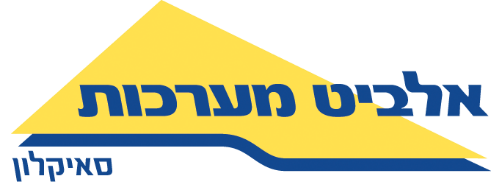Real-Time Updates – “Iron Swords” War
On our website you can find up-to-date information regarding the entry and exit of foreign experts to Israel during the Iron Swords War.
Below are answered to frequently asked questions that can advise employers and foreign experts who are required to leave or enter Israel during the war.
On the Population Authority’s website, the hours of operation and public reception at the offices of the Ministry of the Interior are updated every day.
As part of the return to routine, most units of the Population Authority are open and receiving the public. The Permits and Visas Department are operating as usual, with work permits and work visas for foreign experts being issued regularly. You can contact us and get daily updates on which offices are open and their hours of operation
You can also keep up to date on the website of the Population and Immigration Authority –
https://www.gov.il/he/departments/population_and_immigration_authority/govil-landing-page
As published in the announcement by the Population and Immigration Authority, a blanket extension does not apply to foreign experts, and there is a need to submit a request for the extension of a work permit and appropriate visa. The team of professional lawyers at our office will be happy to assist in handling the issuance of work permits and visas for Israel, as well as the issuance of plane boarding approvals if necessary.
A foreign expert who left Israel with a valid work visa will need to arrange their entry before returning to Israel. Our office team will be happy to assist in issuing a plane boarding approval to facilitate rapid entry into Israel, and to provide an exemption from visiting an Israeli consulate abroad, if possible.
The Airport Authority reports that Ben Gurion Airport is operating normally and is open to flights for all airlines. During the month of November 2023, international passenger traffic stood at 382,081 passengers, via 1,852 aircraft.
Keep up to date on the Airport Authority’s website and check the latest flight schedules-
As mentioned, Ben Gurion Airport is operating normally. Accordingly, there are incoming flights and outgoing flights, in particular of all Israeli airlines as well as a limited number of foreign companies.
Following the security situation, the following is an update of the operating hours at the land border crossings:
Begin Terminal
As of 10.16.2023, the Begin border crossing (Taba) will operate between the hours of 08:00 and 17:00.
Allenby Terminal
Until future notice:
Sunday-Thursday from 08:00 until 16:30.
Friday from 8:00 until 15:30.
Saturday the terminal is closed.
Passage (entry and exit) of the entire population will be allowed, although there may be a limit on the number of passengers/buses.
The emergency services will be active- their hours of operation will be determined each morning.
Arrival of tourists to the terminal will be possible up to 3 hours before the terminal closes.
Diplomats will be allowed to arrive at the terminal up to 1.5 hours before the terminal closes.
Jordan River
Starting from Wednesday October 18, 2023, and until future notice, the Jordan River border crossing will operate from Sunday – Friday between 8:30 to 17:30 (accepting passengers until 16:00 only).
Nitsana Terminal
The cargo terminal is closed 24 hours a day.
The closest country to which you can fly (and to which there are both regular and special flights) is Cyprus. The length of the flight is about 38-40 minutes, landing at Larnaca Airport. Another close country is Greece. You can fly to Athens, Thessaloniki and the Greek islands.
As a general rule, it is advisable to keep up to date with the contact person of the work orderer/sponsor for the foreign expert in Israel. As the execution of the work is in a war zone, it is recommended to wait and be updated daily regarding developments. As long as the work is in the center of Israel and/or north and/or south of the war zone, it is possible to arrive provided that the instructions of the Home Front Command are followed in accordance with the specific instructions in each area.





